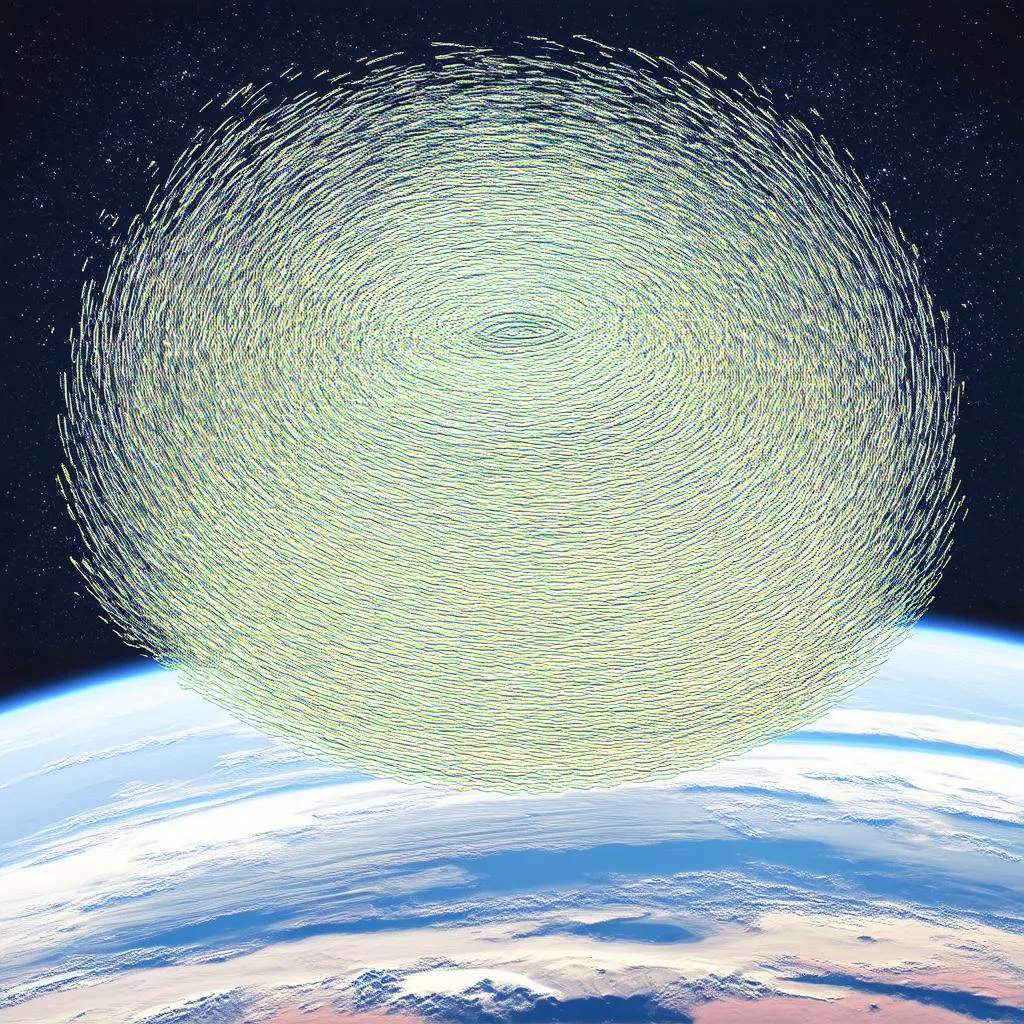Have you ever wondered why astronauts can’t hear each other in space? It’s a question that often pops up after watching a thrilling space movie like “Gravity” or “Interstellar.” You see explosions rocking spaceships, yet everything remains eerily silent. This leads us to the question: Can Sound Waves Travel Through A Vacuum?
The Sound of Silence: Debunking the Myth
The answer is a resounding no. Sound waves cannot travel through a vacuum, and here’s why.
What is Sound and How Does it Travel?
Imagine yourself standing on the bustling streets of Hanoi, Vietnam. Motorbikes whiz by, street vendors hawk their wares, and traditional music drifts from nearby shops. This symphony of sound, while chaotic, is actually a collection of vibrations traveling through the air as waves.
These sound waves are created by vibrations that cause disturbances in a medium, which could be anything from air and water to solids like walls. When you speak, your vocal cords vibrate, causing the air molecules around them to vibrate as well. These vibrations then travel outwards, like ripples in a pond, carrying the sound to a listener’s ear.
The Vacuum Dilemma
A vacuum, by definition, is an area devoid of matter. Unlike the bustling streets of Hanoi, outer space is a near-perfect vacuum, with very few particles to carry sound waves. Therefore, without a medium to vibrate, sound cannot exist in the vast emptiness of space.
 Sound Waves in Space
Sound Waves in Space
Implications for Space Travel and Beyond
This inability of sound to travel through a vacuum has significant implications for space travel. Astronauts rely on radio waves, which are a form of electromagnetic radiation and can travel through the vacuum of space, to communicate with each other and mission control.
A World Without Sound
Imagine a world without sound. No more soothing music while exploring ancient temples in Angkor Wat, Cambodia, no more laughter shared over a delicious meal in Rome, Italy. Our world would be a very different place indeed.
 Astronaut Communicating in Space
Astronaut Communicating in Space
FAQs About Sound and Vacuums
- Can light travel through a vacuum? Yes, light is a form of electromagnetic radiation and does not require a medium to travel. This is why we can see stars and galaxies that are light-years away.
- What would happen if a bell rang inside a vacuum chamber? Although the bell’s hammer would strike the metal, producing vibrations, no sound would be heard because there is no air inside the chamber for the vibrations to travel through.
- Is there any sound in space at all? While space is considered a vacuum, it is not completely empty. Trace amounts of gas and dust can carry sound waves, but these are incredibly faint and require specialized equipment to detect.
Embracing the Silence
Understanding the nature of sound and its limitations helps us appreciate the wonders of our universe. Next time you look up at the night sky, ponder the profound silence of space and the incredible ways we’ve overcome its challenges to explore the cosmos.
For more intriguing insights into the world of travel and science, be sure to explore other informative articles on TRAVELCAR.edu.vn.
